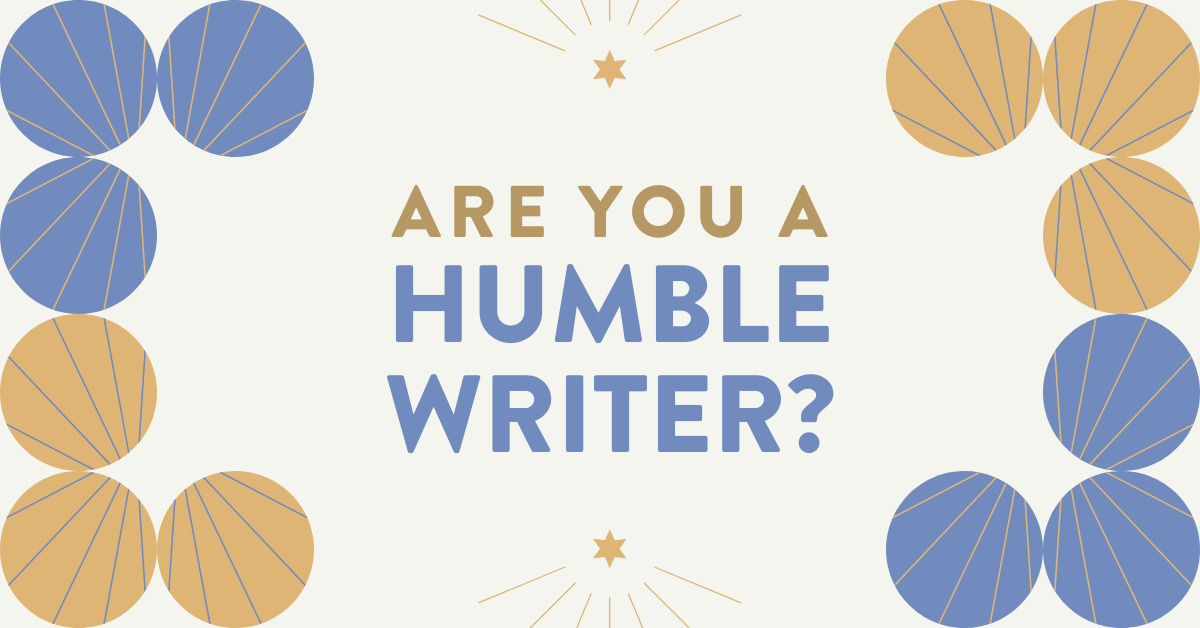 I became a writer mainly because of pride.
I became a writer mainly because of pride.
Growing up, I always had an excess of confidence. Maybe it was being a big fish in the small pond of the desert town of Hesperia, California, but I was supremely confident that I could do anything.
So when figuring out what to do in life, I decided to become a writer because I thought other people should listen to what I had to say.
I had ideas! I had a grand vision of the world! I was smart, dammit!
Fast forward to my writing career after two graduate degrees — an MA in fiction and an MFA in creative writing — and I was still confident. I was sure that I would be able to publish a book before I was 30. I was sure I would be able to land a tenure track position at a university teaching English and creative writing. I was sure that I would achieve at least a moderate level of fame, and that fame would arrive with an enviable paycheck.
None of those things worked out.
Instead, what happened was a long, slow lesson in humility. For the past decade, all my lofty preconceptions of my success have been shattered.
I adjuncted for years at 5 universities and landed a one-year full time position, but never got a tenure track position — certainly not one teaching creative writing, which is even harder to get than English composition faculty positions.
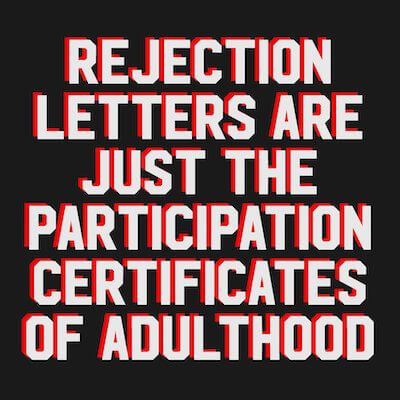 I racked up 1700 rejections from literary magazines. Yeah, it’s actually takes a lot of work to get rejected that many times. I bought a shit ton of stamps and stole reams of paper from anywhere I could get it. I confessed the 1700 number in an online forum and most of the commenters agreed that I should quit writing. Yes, I earned some nice acceptances as well, but I still got rejections/acceptances at a 70/1 ratio.
I racked up 1700 rejections from literary magazines. Yeah, it’s actually takes a lot of work to get rejected that many times. I bought a shit ton of stamps and stole reams of paper from anywhere I could get it. I confessed the 1700 number in an online forum and most of the commenters agreed that I should quit writing. Yes, I earned some nice acceptances as well, but I still got rejections/acceptances at a 70/1 ratio.
And it took me almost a decade to complete my short story collection and find a publisher for it. The process I thought should have taken a few years ended up being far more painful, difficult, and time-consuming than I ever would have imagined.
And you might be thinking — but John, I think you are successful! You have won several short story contests and have a book published and you earn a full time living as an editor and write a blog beloved (or at least read) by millions!
Well bless your heart, thank you for thinking that. And yeah, that’s all true. I am definitely thankful for those things. But when I was just starting out as a writer, I wouldn’t have defined success in that way.
I didn’t want to just roll out a book, I wanted to make a splash.
I wanted my name known.
I wanted that big advance.
I wanted awards.
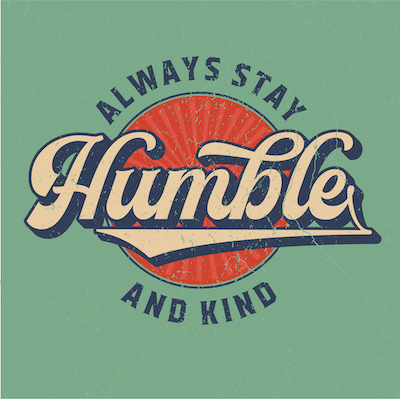
So in order for me to be happy as a writer, I’ve had to learn a lot of humility. I’ve had to reform my expectations for my writing life and get a better sense of my skills.
Now for some of you, you might feel squirmy about my use of the word humility. You think that humility is someone who is a doormat, who constantly underestimates their own talents, who doesn’t assert themselves.
I don’t think that’s humility at all.
There are two mistakes you can make in regards to humility and pride.
- To think of yourself in very lofty ways. This is the person who never takes other people’s workshop advice on their story. This is the person who doesn’t read very much because they don’t want to pollute their genius brain with other people’s ideas. This is the person whose Twitter feed is filled with snarky take-downs of the greatest writers of our age. This is the person who gets personally offended when they get a rejection.
- To think of yourself in lowly ways. Woe is me, I suck. This is the person who never sends out to literary magazines or agents or publishers because they’re scared of rejection. This is the person who critiques themselves in person and online, and who sometimes won’t even admit they’re a writer to their friends or family members.
But humility is neither thinking about yourself too lofty or too lowly.
Humility is about thinking about yourself … rightly. A correct assessment. An accurate assessment.
Are you a good judge of how talented you are? You often aren’t. I think writers are often misjudging how talented or untalented they are. They think they’re brilliant or that they suck. And that disconnect is often a form of pride. And here is the real kicker: that misjudging of your talents is probably the main thing holding you back in your writing career.
Because listen to me: if you think too highly of yourself, you will submit to literary magazines and agents and publishers that you’ll never land. You will be angry that you’re not getting the credit you think you deserve and you’ll burn out and fail because you’re overestimating yourself.
And if you think too lowly of yourself, you won’t put yourself out there enough. You won’t roll the dice often enough to allow for luck to take place. You won’t write enough, or submit enough, and this will sabotage your career.
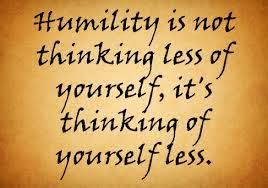
More importantly, humility is not thinking about yourself too much at all.
See, back at the beginning this post, when I talked about how I decided to become a writer, it was all about me. I was thinking that I had something to say, that I was smart, that I was going to be great at this.
That focus on myself is the essence of pride.
You know what the humble writer is focused on?
- They are focused on praising other writers.
- They are not competing with fellow writers, they are working hard to encourage them.
- They are building communities of writers.
- They are buying friends’ books (New books, not used books!).
- They aren’t jealous of other writers.
- They are focused on providing pleasure for their readers.
If you focus on other writers and on your readers rather than constantly thinking about your own career, and can be happy for others and try to help others, that’s the essence of humility.
So how am I doing on humility?
I will say that at this stage of my career, I feel like I have a much more honest concept of myself as a writer. There are many types of books that I know that I cannot write, because those simply aren’t my skill sets. I don’t feel like I need to have a NYT bestseller in order to succeed as a writer. I know that I’m talented in many ways, and yet I have a lot of skills to still work on.
Do I still dream sometimes? Absolutely. You shouldn’t give up dreaming. And you shouldn’t give up always pressing to get better. But before I was fantasizing, and now I’m focusing more on steadily doing the work.
And I think I’ve gotten much better at not focusing on myself all the time, too. I mean, this blog really has been a way that I’ve given back to the literary community. I’ve tried to provide resources, from collections of long sentences to story generators to posts on slow writing, that will be helpful for my fellow writers. I’ve written 900 posts now over the last 12 years, and while at the beginning I was blogging for myself, writing what I wanted to write about, now I’m much more focused on what my audience wants, and what could benefit them.
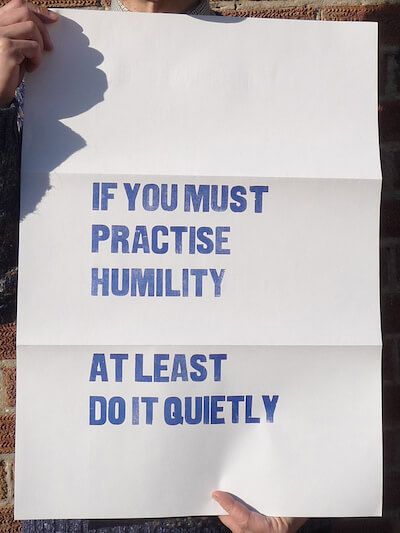 Now this post is not meant to depress you. Far from it.
Now this post is not meant to depress you. Far from it.
I think learning humility is actually the best way to be successful as a writer.
By becoming humble, you’re going to accelerate your career. Because you have an accurate conception of yourself, you’re going to submit to places and agents that will be right for your writing, rather than being too timid to submit at all or shooting too high above your pay grade.
And by concentrating on others, rather than yourself, you’re going to build a community of people that love you. You’re going to gain friends who want to buy your book because you bought their book. You’re going to have writers that blurb your book because you’ve promoted their book on Goodreads and Facebook. You’re going to have someone refer you to their agent because you’re simply a wonderful human being who wrote a great Twitter essay that helped a lot of writers.
The humble writer is the successful writer.
Get humble, my friends.
John Matthew Fox
PS. I would love to hear about your journey of humility!
Share so other writers don’t feel so alone.
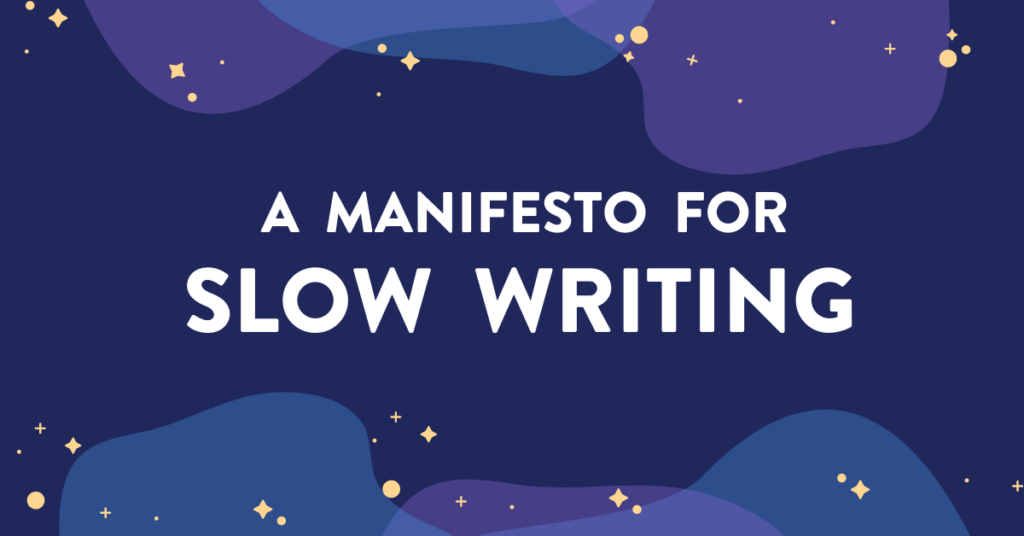
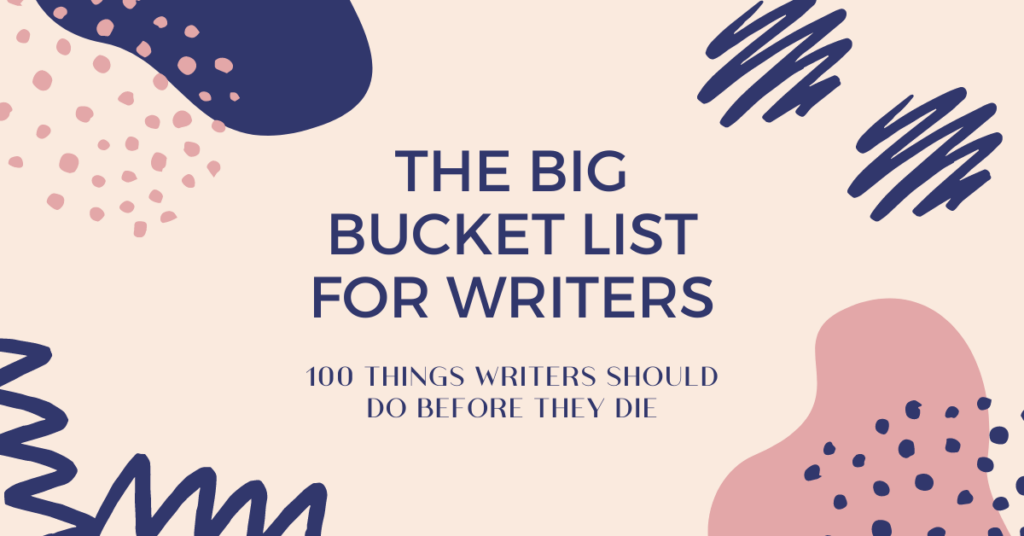

29 comments
Thank you for this post. It’s not depressing at all.
It’s just the reality of the writing life. I’m beginning to learn my limitations and my strangths and how to be a slow writer. Thank you for writing that article too. I was beginning to think I was just a bad wtiter. So God knows I needed that. Success is not usually what we believe it is. We just need to embrace the successes we do achieve and to reach just a little higher with each one.
I loved, loved, LOVED this post. Thanks, John.
I always feel as if I learn something I thought I already knew when I read your articles. Thank you.
I think, John, the ideal middle way , which I adopt is ‘Don’t humblebrag’. One of my grown up family asked me last Christmas what my new year resolution was. Much to her amusement I said ‘I’m not going to humblebrag’.
Ha! Love that resolution.
Your essay, especially the part about our early stages, captures the core of emerging into the reality of being a writer. My career followed a similar path. After nine books published and a tenth coming out, I still get rejections. The wisdom I would add to yours is that it all began with the work itself and that’s what a serious writer knows comes first. Cast your ego aside and put your fingers on the.keyboard.
Great advice. Just concentrate on the work.
Beautiful testimony to our difficult and often isolating profession. You’ve inspired me today to do more connecting and encouraging of my fellow writers. Many thanks John!
Great advice for writers, but even greater for life in general!
Thank you!!
Joni Harsh
Funny thing, this life. I became a writer because I fell in love with the art of writing. I didn’t do it with a vision of having a private jet. You have to love your work ‘in sickness and in health’ . Not all marriages go smoothly but it’s a commitment that will bring you contentment and it’s also about understanding the ‘We regret to inform you’ fraternity. Thank you for the article John, you reinforce all the things I’ve always felt.
Hi Peter,
You know that’s a good idea — maybe it would be good to make some kind of “writer’s vow” inspired by marriage vows.
Thanks for this really honest and wise post, John. My take–Lose the ego and focus on the craft and community of the art.
I have written twelve short stories and three novels over the past twelve years but they are all havimg their cool places inside my laptop instead of some positions on shelves of bookshops. I have packed up after over a hundred rejection and i have thpught of myself as a rubbish writer. I am scared to submit now but your write up has made me rethink. I might open my laptop again and go back to work. I hope the fear will totally disappear in the end.
So happy that this post could revive your writing hopes, Livingstone. Happy writing and revising.
A lot of this is sage advice, John. (Yeah, I’m still checking in from time to time and I hope you’re well!) But there’s an even bigger humility trap that many incredibly generous writers face: complete and total lack of reciprocity. There is one writer I know who is one of the kindest people in the world. I won’t name him, but he’s spent his entire life writing a series of ambitious books that really deserve more credit. The man is a total gent. In every way. A total sweetheart. He regularly gives and pays attention to people. And these people don’t reciprocate.
Whatever career you have, I think it’s also important to make sure that you ALWAYS prop up the people who believed in you when many others wrote you off. And I also think you have to be wary of what I call passive competition — namely, young up-and-comers who claim to be “nice” or who adopt one of those duplicitous BookRiot fan visages, but are really angling to kill you off and seize everything that you have. They’re just WAITING for the time when they are perceived as more successful than you (even though, as we all know, every artist and, for that matter, every human goes through ups and downs) so that they won’t feel obligated to stay connected. I’ve seen more of this in the literary world, which seems to flourish on passive-aggression and a kind of small stakes pecking order that is patently ridiculous, than I do in other artistic communities I’ve become part of, where people are far more supportive of each other. And it’s one of the reasons I really want little more to do it, other than some of the occasional cameo appearances I make here and there.
Hi Ed! Good to hear from you. Yes, I like the notion of reciprocity. I probably could write a whole other post on that. But in some ways, I feel like reciprocity is still operating on the level of fairness, or on the idea of trading or bartering. But I wonder whether a better artistic community would be inspired by Derrida’s idea of the Gift, in which the only true gift can be one that doesn’t expect anything in return. And if someone else doesn’t reciprocate by buying your book or giving you a review or a blurb, that’s on them! That’s their moral failure. I think if everyone strived to become true gift givers, then that’s the community I would prefer rather than a reciprocity/trading community. Unfortunately, as you and I know, that would never happen, but a writer can dream, can’t he?
As far as your second paragraph, I absolutely agree. It’s so crucial than you never feel so important that you cut ties with someone else. I think if you’re humble, you don’t have connections with other people because they can benefit you, but because you can offer something to them. So no matter whether you have incredible success or stay relatively unknown, you’re constantly helping those who don’t have anything to offer you.
And although I haven’t been able to help everyone who reaches out to me personally through Bookfox, I do offer them the blog, and I have developed some relationships with young writers where I regularly help them for free. I’m trying. I hope that if by some weird trick of fate I do become famous, I would keep the same attitude.
John! You may have a point there about reciprocity being a barter system. And invoking Derrida as you have makes a good deal of sense. I suppose my original comment was very much motivated by national developments in which we choose to bestow cruelty and debasement rather than magnanimity: the curiously American offshoot of neoliberalism that, alas, has crept its way into once secure cultural quarters. Or maybe it was always like this and I opted for a long while to saunter about wearing idealistic sunglasses. I certainly agree with you about opportunistic connections. I have never reached out to any writer with the idea that I would get something back (unless I was going for an ask; sometimes asks are ineluctable) and tried in my former life to offer a forum where work could be properly unpacked and appreciated and challenged. I do a secret good deed every day and I shall likely go on doing so quite invisibly (and often anonymously), even if the earth becomes a scorched wasteland. Yes, we can dream. And perhaps, even in these dark times, our boldest hopes will reify into regularity. Cheers! Ed
Yes, unfortunately, reciprocity would be better than how many authors act now. I suppose I’m too much of an idealist.
And I agree that you’ve done a great job contributing to the literary community. Thank you!
Thank you for the thoughtful, inspiring post! May all the good you do come back to you!
Really enjoyed and related to your post. I was being interviewed on the radio once and the interviewer asked me if writers needed to be humble, and I said, well, if you didn’t start out that way, after a while, you probably would be.
If you remove the theme of writing, this post is pretty much the story of my life. Specifically, growing up with a ton of confidence (bordering on narcissism). My great humbler, however, was the U.S. Army. To anyone who hasn’t experienced the military, it’s pretty much the arrogance/overly competitive big-leagues. (I absolutely love the military and want to be clear that I don’t say that to attack it in any way, but it is EXTREMELY competitive.) Point being, this is where I learned humility and it has carried over into my life and fledgling writing career. Humility is important on so many levels and I think this post lays it out perfectly for anyone who may still be struggling with that concept!
Wait, so are you implying that it is impossible for someone to compete with AND encourage someone else? I understand all of your points, and trust me I really do understand, but I’m sorta bothered by this idea of humility where a person is looked down on as a writer for actually choosing to be great, to strive for that, all because it’s not what a writer is suppose to do. They’re supposed to be friendly to other writers, even if the individual themselves are not worth talking to, and praising the work of writers you probably don’t really like. I praise writers often, not to their face most of the time, but I do, but there are more writers I’m not fond of than I am – would I be considered someone who lacks humility and friendliness? Does me looking at my work and thinking: “yeah, this isn’t the best now, but I will die as one of the greats,” a bad thing, or a thing I’m not “supposed” to think as a person in the craft? Why would I want to be an average, or just good writer? Idk… Articles like these are great for some people but as a person who understands balance VERY well, this article doesnt do it for me.
Blessings.
No, I think competition and humility are compatible. It’s a bit of a paradox, to be strive to be the greatest you can be, and also remember to not value yourself more highly than others.
I don’t think it’s a problem to dislike certain writers, either. I think that’s discernment. Of course you should like some forms of writing and dislike other forms of writing. Humility doesn’t mean losing the ability to critique anyone else.
Ambition is good, as long as you don’t get so caught up in it that you treat others badly.
If you’re great at balance, then good for you, that’s awesome. I think it’s a very difficult balance to achieve, and I’ve seen a lot of authors struggle with it. That’s why I wrote the piece.
At the end of last year I put up a post on my blog listing all the places where I’d gotten work featured. After looking at it a writer who I’d considered a friend — and guess I still do? — said to me, “I’m jealous of you.” At first I thought he might be kidding. Maybe he was. I stammered something about just continuing in the face of rejection. And the friend shook his head, saying something about having given up on some of his stories. I hadn’t thought of that blog post featuring the year’s publication record as something to be jealous of — I have seen many I consider far more impressive. I’d put up the list more for myself than for anyone else. I needed to remind myself what had happened. I went through many years where I was too hurt by rejection to keep submitting my poems with the kind of relentlessness that seems to be required — at least for me and for my “skill level.” I bought that friend’s novel when it came out and congratulated him. He hasn’t bought my book. So it goes, as Kurt Vonnegut would say.
good grounding stone and should be applied to all arts and well anyone. best regards
I reckon I’m ‘humble’ since I don’t seem to care if people like my writing or not. However, I am interested if the targeted reader is inclined to continue reading my work. But that is only because I want the message to be understood–not for notoriety. Interestingly, though I write fiction about men from a man’s point-of-view, it is women who seem to really enjoy learning from my work how we men think and why we do what we do. Maybe because my aim seems to consistently miss my intended target that keeps me humble. Ah well, if wives, girlfriends, and mothers are able to understand their husbands, boyfriends, and sons better, then the message is productive.
Humbleness is having a great attitude, because you are thinking in term of others being superior to you ,Too, it shows you have a good heart and a good out look on the life you chose to live to make the world a better place. Besides that, you always get more bees with” honey” or should i say” humble pie”, than you would with mud in the face! Yes! and i humbly thank you for the posts, They are very, very, education and contagious to authors and writers!Read the book ‘The Brewers Brew That Overflowed”It is a great yet, humbling bio on life!
Was practice supposed to be misspelled in the picture above??
I was caught off guard by that.
That’s just British spelling.